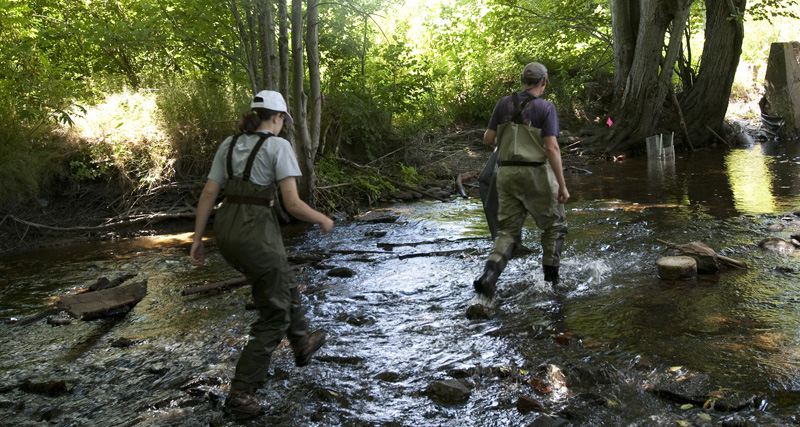
Graduate student studies dams, impact on American Eel
The American eel, Anguilla rostrata, is one of three species of freshwater eels found around the globe and is the only species found in North America. According to the U.S Fish and Wildlife Service, the species has survived multiple ice ages and is considered to have the broadest diversity of habitats of any fish species in the world.
But regardless of its impressive past, the species has been steadily declining worldwide due to a multitude and combination of factors including overfishing, parasites, migration obstruction and climate change. Because dams remain a site of injury and death for these migrating fishes, predicting when they will migrate is necessary to target fish passage efforts in Maine.
Emily Thornton, a Ph.D. student at the University of Maine, is studying downstream movement of maturing American eels in the Penobscot River. She is working to predict the species migration patterns using a mathematical model to increase successful passage through or around hydroelectric projects and dams.
The American eels exhibit a complex life history, entering many physical phases. They are catadromous fish, meaning they are born in the ocean, mature in freshwater and return to the ocean to spawn.
The eels hatch in the Sargasso Sea in the middle of the North Atlantic Ocean then ride the ocean currents to areas from Greenland to Brazil. Once the species reaches sexual maturity, it will return to the Sargasso Sea to spawn and presumably die.
Thornton’s work is conducted in collaboration with the New England Sustainability Consortium’s (NEST) dam decision-making group, who are developing a framework to assess ecological, economic and social effects of dam-related management decisions. In August, the project was expanded by a $6 million grant from the National Science Foundation’s EPSCoR program to fund a four-year study examining the future of dams in New England.
Thornton’s research is also funded by the Nature Conservancy and the U.S. Geological Survey, Maine Cooperative Fish and Wildlife Research Unit. She is co-advised by Joe Zydlewski and Erik Blomberg in the Department of Wildlife, Fisheries and Conservation Biology.
